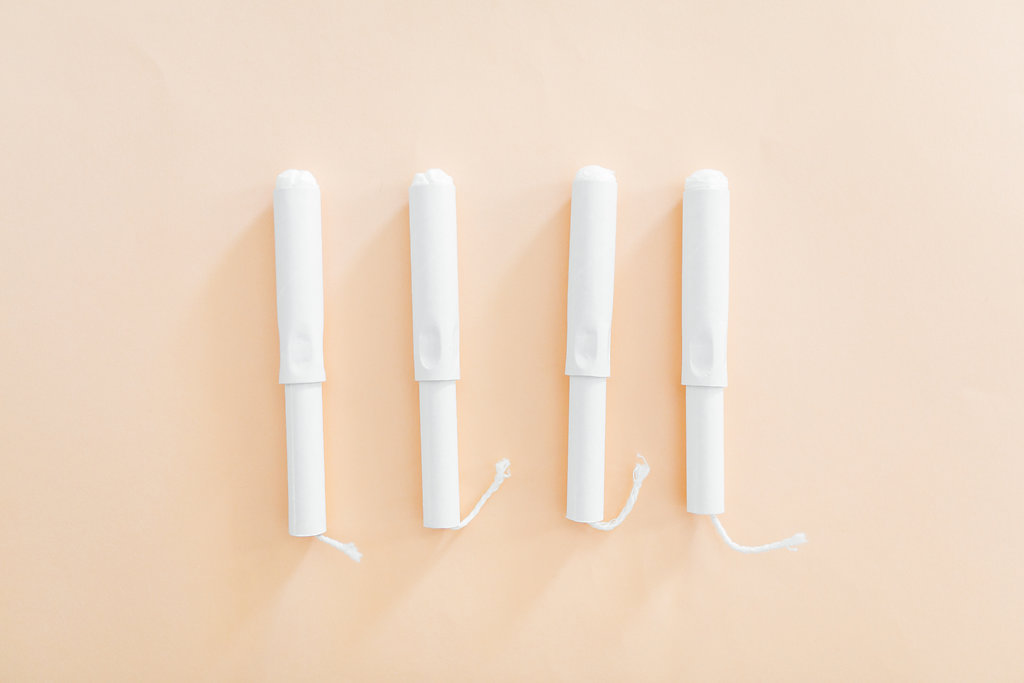
Let’s talk about a very personal topic… and a very personal space. Feminine health isn’t new, but a lot of the buzz around tampon companies and their effect on feminine health has been. There is so much conflicting information on the internet, that it’s hard to feel completely confident in your feminine health product choices.
You’ve probably seen some of the new tampon companies that are bringing organic 100% cotton tampons to the feminine health sphere and like me, have a few questions. I just truly had never even thought twice about what tampons I used until I started seeing companies claiming to have organic tampons.
In this clean living quest so many of us are on, we eat and drink healthy organic foods, use clean beauty products, have switched to non-toxic deodorant, and hopefully use clean home products (from laundry detergent to surface cleaner). It’s time to see where the feminine health industry plays a part in this.
Meet Dr. Tiffany Stadnick:
Dr. Stadnick is an OBGYN practicing in North Scottsdale, Arizona native who received her my medical education from the University of Arizona and completed her OBGYN residency at Banner University Medical Center Phoenix. She is passionate about women’s health care and was kind enough to let me ask her some questions about the do’s and don’ts of feminine health care and how to be an educated consumer when it comes to feminine health products.
What are some general do’s and don’ts of feminine health care that you wish more women knew?
“DO be aware of your body and be aware of any products / actions that may cause inflammation or allergic reactions.
It is important to establish a daily routine and let the vaginal area breathe. Althleisure wear and leggings are a huge trend right now and I know they are comfortable, but you must change your tight work out clothes right after your workout.
I see countless patients with recurring vaginal infections and it comes down to sitting in sweaty, tight athletic pants after working out. The vagina needs time to breathe and sitting in a sweaty environment for several hours can cause fluctuations in the vaginal pH increasing one’s risk of vaginal infections. So please change from the gym before running errands if possible.
I also advise DON’T wear underwear overnight. Women should be wearing 100% cotton underwear in the day and if you prefer to sleep in underwear I recommend looking into the brand Thinx. They prevent bacterial growth during menses and are very absorbent.”
What is the difference between organic tampons and conventional tampons?
“Conventional tampons contain a variety of ingredients including rayon, viscose and cellulose fibers in addition to cotton. They often include a cotton and synthetic rayon mixture that has been dyed.
Currently, there is concern that the cotton may have harmful pesticides which organic cotton would not have. And right now the FDA does NOT mandate manufacturers to list the ingredients of feminine care products so it is hard to be exactly sure what is in your tampons or pads.
The Menstrual Products Right to Know Act was introduced to Congress last year, and if passed, would require the makers of tampons, pads, and menstrual cups to list ingredients on their packaging.
But organic tampons simply means that the ingredients, like cotton, used in the tampons were not grown with pesticides or insecticides and free of any chemical dyes/fragrances and are often 100% cotton meaning no synthetic mixture.”
Does using conventional tampons make a difference in feminine health?
“Yes, this can have an impact on feminine health. Currently, most commercial brands have labels stating that their products “may contain” synthetic cotton and rayon, and most likely do.
Tampons and pads are also often bleached with chlorine which does create a byproduct of dioxins: toxic chemical compounds that could cause cancer, disrupt hormones, damage the immune system, and cause reproductive and developmental issues.”
What are some ingredients we should avoid in feminine health products?
“I encourage all my patients to read the labels on their feminine hygiene products and be aware of any products that may result in allergies or could lead to vaginitis such as
- parabens
- sodium sulfate
- triclosan
- dioxane
I generally recommend any non-scented products. If you do want to use a cleansing soap look for a mild hypoallergenic option. Fragrances increase the risk of vaginal infections.”
What are some product trends you have seen; ones you like and ones you advise to stay away from?
“I would encourage all my patients to consider alternative forms of feminine care products and organic tampons without any possibilities of harmful chemicals for feminine and environmental benefits.
Stay away from using any types of products that would alter the vaginal pH and introduce unwanted bacteria to the vaginal flora.
A daily probiotic with lactobacillus is a great way to maintain a health vaginal pH and prevent recurrent vaginal infections.”
What do you think of menstrual cups?
“Menstrual cups are a safe alternative to pads / tampons that can be used during one’s menstrual cycle for up to 12 hours. I educate all my patients that they need to be comfortable placing the cup inside their vagina and the vagina will stretch to accommodate the cup.
I would caution not to use the cup after recent childbirth as it may cause unwanted trauma to the vagina that is healing from delivery.
It can be used for patient’s with latex allergies as it is made from silicone and is definitely a great alternative for those wanting to be environmentally conscious since it is resusable.”
Are cleansing washes and wipes helpful or hurtful?
“I would caution against over-cleansing the vagina. In order to maintain a normal vaginal pH cleansing once a daily is best to maintain a healthy pH.
A cleansing product like Summer’s Eve is fine but monitor for any signs of irritation or allergic reaction such as increasing vaginal discharge or itching. If one cleanses too frequently that may also alter the vaginal pH increasing the incidence of vaginal infections.
Bottom line, once a day cleansing is best with a non-fragrant, mild soap.”
Last but not least, is sleeping in a tampon okay?
“This is a great question and actually a lot of my patient’s have questions regarding tampon use. Sleeping with a tampon generally depends on one’s menstrual flow.
I would not recommend use for more than 8 hours. Generally, one should change their tampon every 1-2 hours during heavy flow and every 3-4 hours during lighter flow days.
Overnight, if sleeping with a tampon be sure to place a new tampon prior to going to sleep and do not keep in any longer than 8 hours as the risk of toxic shock syndrome can increase with increased duration of use.”
Be Aware
Wrapping up this interview, I am going to lead with feminine health with a greater sense of awareness for my own body and the products I use. In fact, I have already tried out The Diva Cup and started my switch to 100% organic and chemical free tampons. The tampons I get are from Kali Box, because they comes straight to my door which is AMAZING, and you can try them out no strings attached with 30% off using LORE at checkout.
The vagina is the most absorbent part of the body.
The amount that these chemicals in conventional tampons are absorbed is still conflicted from doctor to doctor and lacking a bit of studies to show the effect. However, if there is one thing for sure it’s that’s every non-biodegradable tampon and pad used and thrown away is sitting in a landfill somewhere.
Two of the most important take aways from this conversation with Dr. Stadnick is that
- Never ever use scented feminine health products
- Tampon manufacturers do not have to list their ingredients, so you have to research products before purchasing
Oh and change out of sweaty gym clothes immediately!



Thanks for pointing out that we should change whenever we came from a sweaty activity since it will affect the vagina which can make it prone to infections. I guess that is why my sister has been having issues now. This is because she would always tell me that she is too tired to change clothes whenever she comes home after a workout.